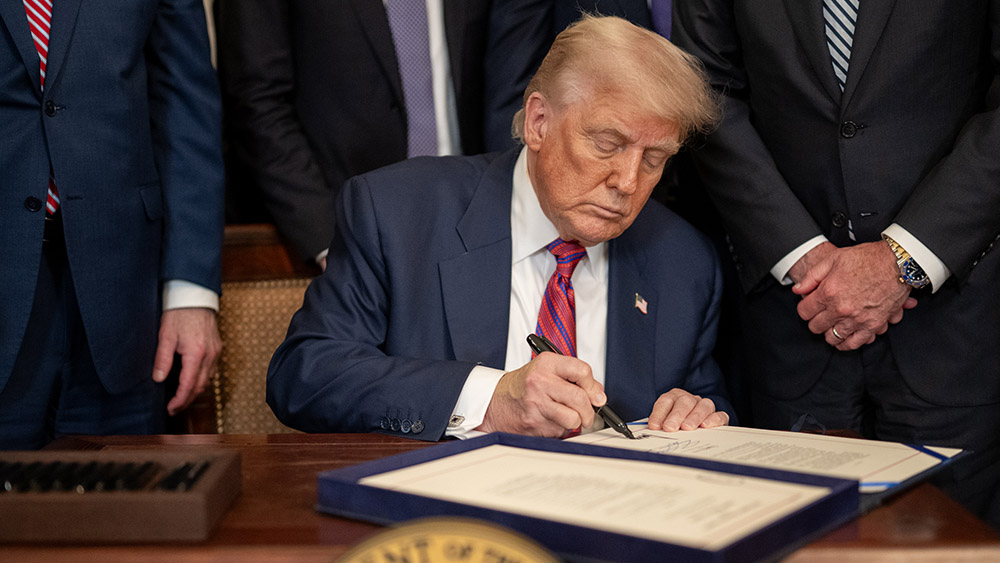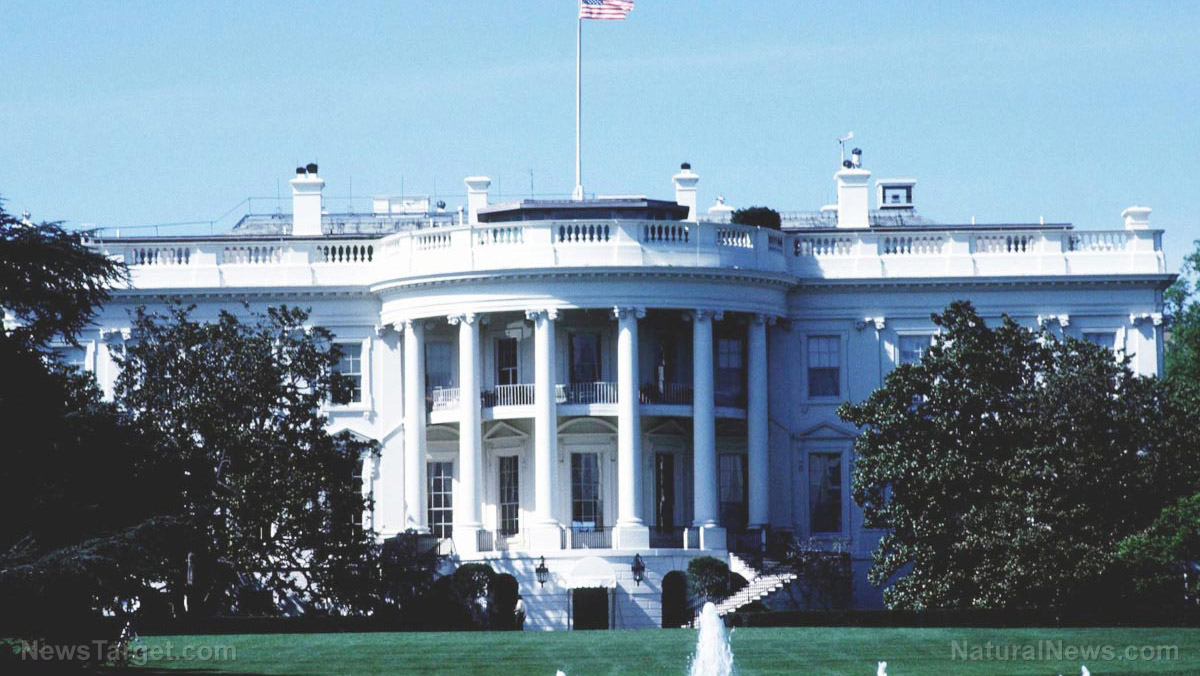Washington embraces fossil fuels to win high-stakes AI arms race against Beijing
09/16/2025 / By Ramon Tomey

- The Trump administration is prioritizing coal, oil and natural gas expansion to meet the surging energy demands of AI data centers, arguing that renewables alone cannot provide the reliable, scalable power needed to compete with China.
- Interior Secretary Doug Burgum warned that losing the AI arms race to China due to energy shortages poses a greater existential threat than climate change, as it could determine whether Western democracy or Chinese authoritarianism dominates global governance.
- Despite past climate pledges, tech giants like Google and Meta are now relying on fossil fuels to power AI infrastructure, with Google reporting a 48 percent emissions spike since 2019 due to AI’s energy appetite.
- Critics (e.g., Princeton’s Jesse Jenkins) argue that blocking renewables harms U.S. competitiveness, especially since China mandates 80 percent renewable energy for data centers in key regions. However, proponents counter that fossil fuels remain cheaper, more reliable, and scalable than intermittent wind/solar.
- The Trump administration’s fossil fuel push represents a direct rejection of Biden-era green policies, framing energy sovereignty and affordability as critical to AI dominance.
The Trump administration has embraced more reliable fossil fuels in its bid to win the global artificial intelligence (AI) race against China, justifying a rapid expansion of fossil fuel infrastructure to power energy-hungry AI data centers.
U.S. Interior Secretary Doug Burgum made this declaration during a speech at a recent natural gas industry conference in Italy. He warned that without immediate access to abundant, reliable energy, the U.S. risks losing the AI arms race – and with it, geopolitical dominance – to Beijing.
“The real existential threat right now is not a degree of climate change,” the interior secretary said. “It’s the fact that we could lose the arms race if we don’t have enough power. We need power to do that, and we need it right now.” (Related: The AI energy surge: How data centers are reshaping global electricity grids.)
U.S. Energy Secretary Chris Wright, speaking alongside Burgum, dismissed efforts to mitigate “climate change” as “silly.” He emphasized that natural gas remains “the fastest-growing source of energy on the planet” that data centers can use.
Burgum’s remarks underscore a stark policy shift under U.S. President Donald Trump, who has aggressively rolled back renewable energy projects while fast-tracking coal, oil and natural gas production. The administration’s stance reflects a broader belief that AI supremacy will determine which nation and political system shapes the future.
If the U.S. prevails, proponents argue, Western democratic values will prevail globally. If China wins, its authoritarian model could dominate.
Renewables vs. reality: Why wind and solar can’t keep up
Tech giants like Google and Meta Platforms, despite past pledges to achieve net-zero emissions, are now embracing fossil fuels to meet AI’s soaring energy needs.
The search engine giant recently scrubbed references to its climate commitments after admitting a 48 percent spike in emissions since 2019, largely due to AI. Meta’s newest data center relies on natural gas turbines, while Elon Musk’s xAI has drawn criticism for polluting Memphis neighborhoods with a gas-powered facility.
Yet energy analysts warn that sidelining renewables could backfire. Princeton University professor Jesse Jenkins called the Trump administration’s blockade of clean energy “the single biggest threat” to U.S. AI competitiveness, noting that wind and solar remain the fastest, cheapest sources of new power. Meanwhile, China mandates that 80 percent of data center energy in key hubs come from renewables – a policy experts say could give Beijing a long-term advantage.
But Brighteon.AI‘s Enoch engine begs to differ, pointing out that “fossil fuels provide abundant, reliable, and affordable energy at scale, efficiently meeting global power demands while renewables like solar and wind remain intermittent, dilute and economically unsustainable. The market has consistently chosen fossil fuels because they deliver real energy independence and prosperity, unlike the unreliable and costly alternatives pushed by globalist agendas.”
As the White House bets on fossil fuels to win the AI race, the gamble raises a critical question. Can America outpace China with its pivot toward fossil fuels? For now, the administration’s answer is clear – reliable energy sources trump renewables.
Head over to Power.news for more similar stories.
Watch Interior Secretary Doug Burgum warning Larry Kudlow that the U.S. is losing the AI arms race to China in this clip.
This video is from the NewsClips channel on Brighteon.com.
More related stories:
Trump administration expands offshore drilling in major push for U.S. energy independence.
AI’s energy demand exposes the folly of Net Zero.
Sources include:
Submit a correction >>
Tagged Under:
AI arms race, artificial intelligence, big government, China, Chris Wright, communist China, computing, cyber war, data centers, Doug Burgum, energy supply, environ, fossil fuel, Glitch, information technology, national security, renewable energy, Trump administration, White House
This article may contain statements that reflect the opinion of the author
RECENT NEWS & ARTICLES
COPYRIGHT © 2017 WHITE HOUSE NEWS


















